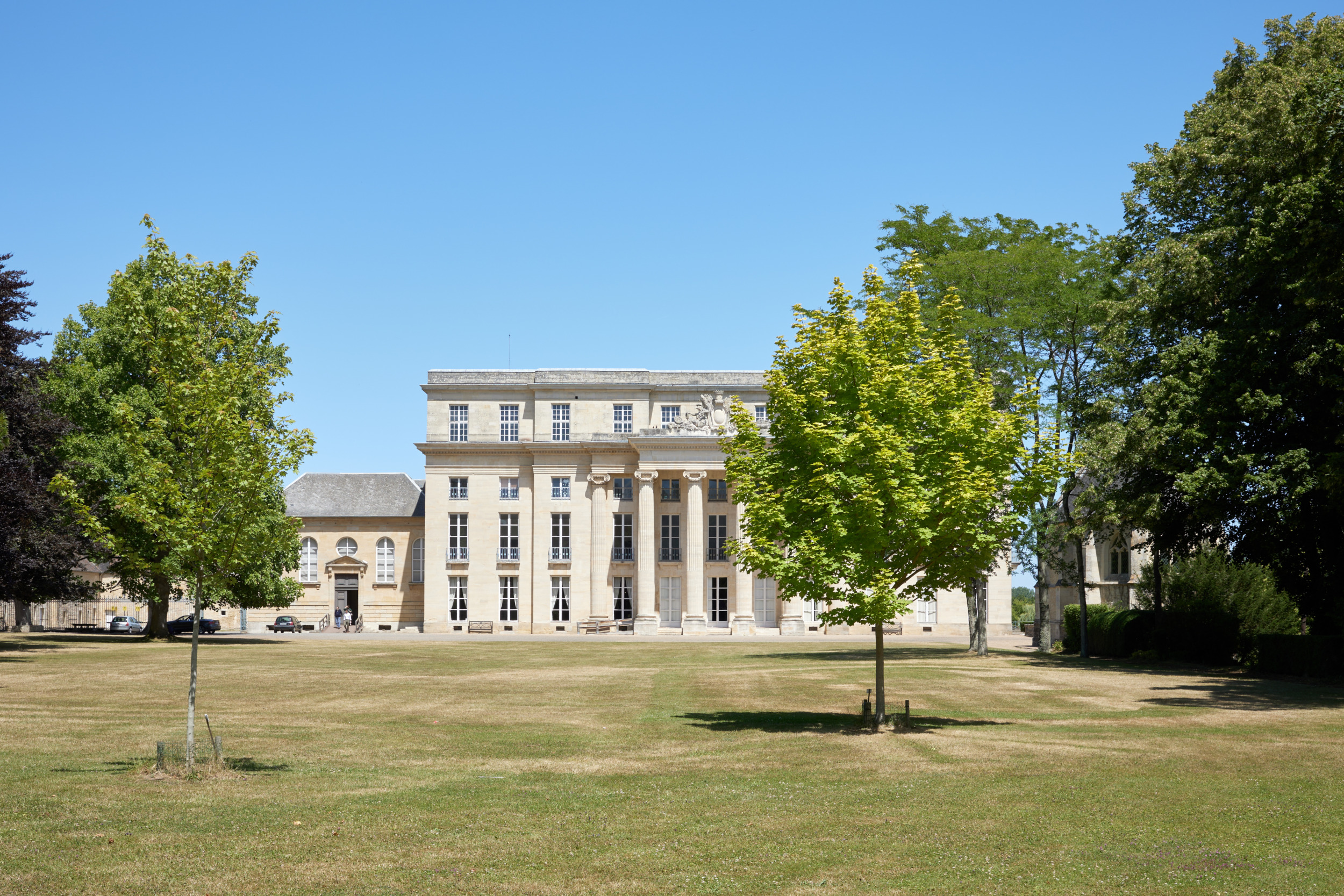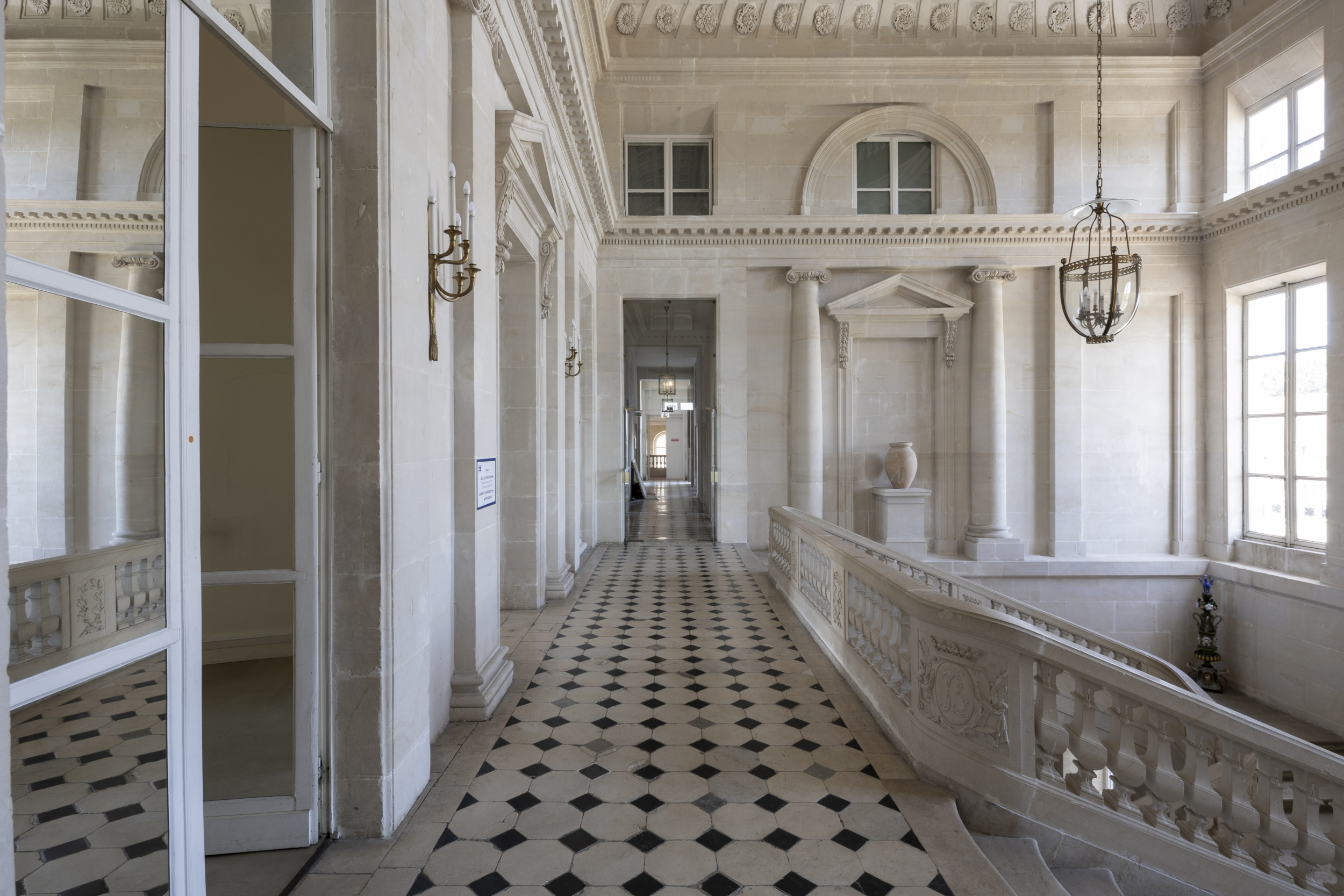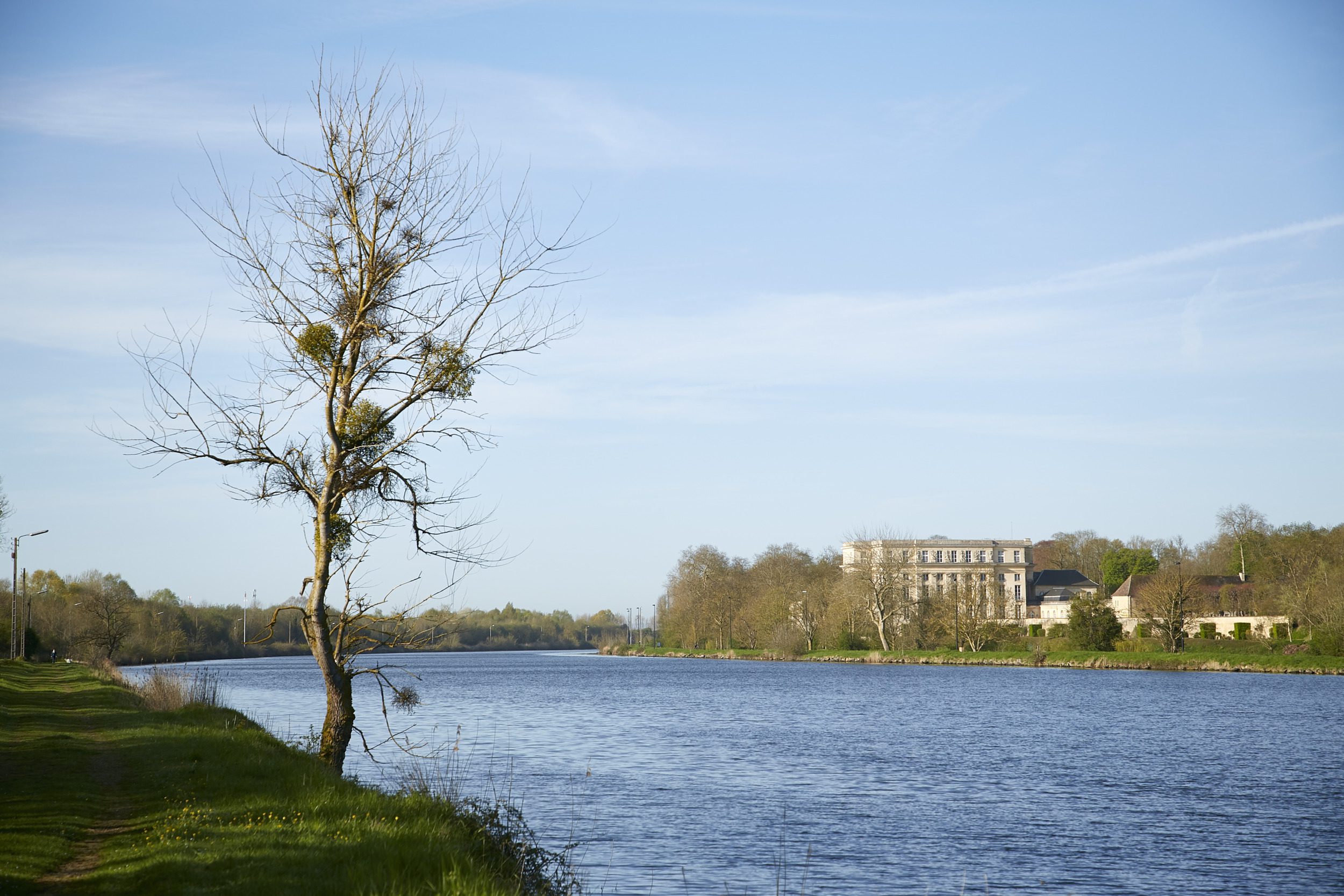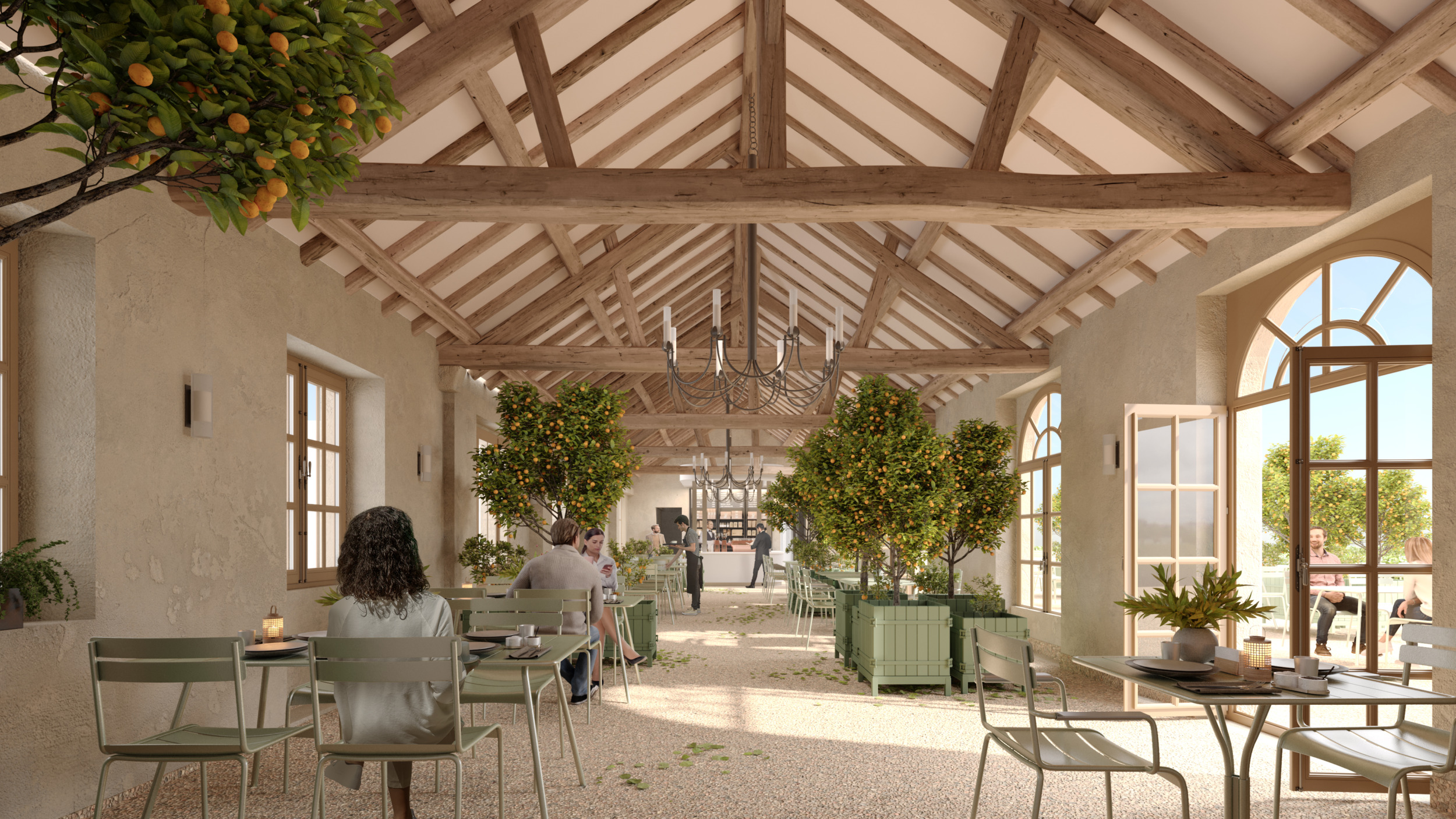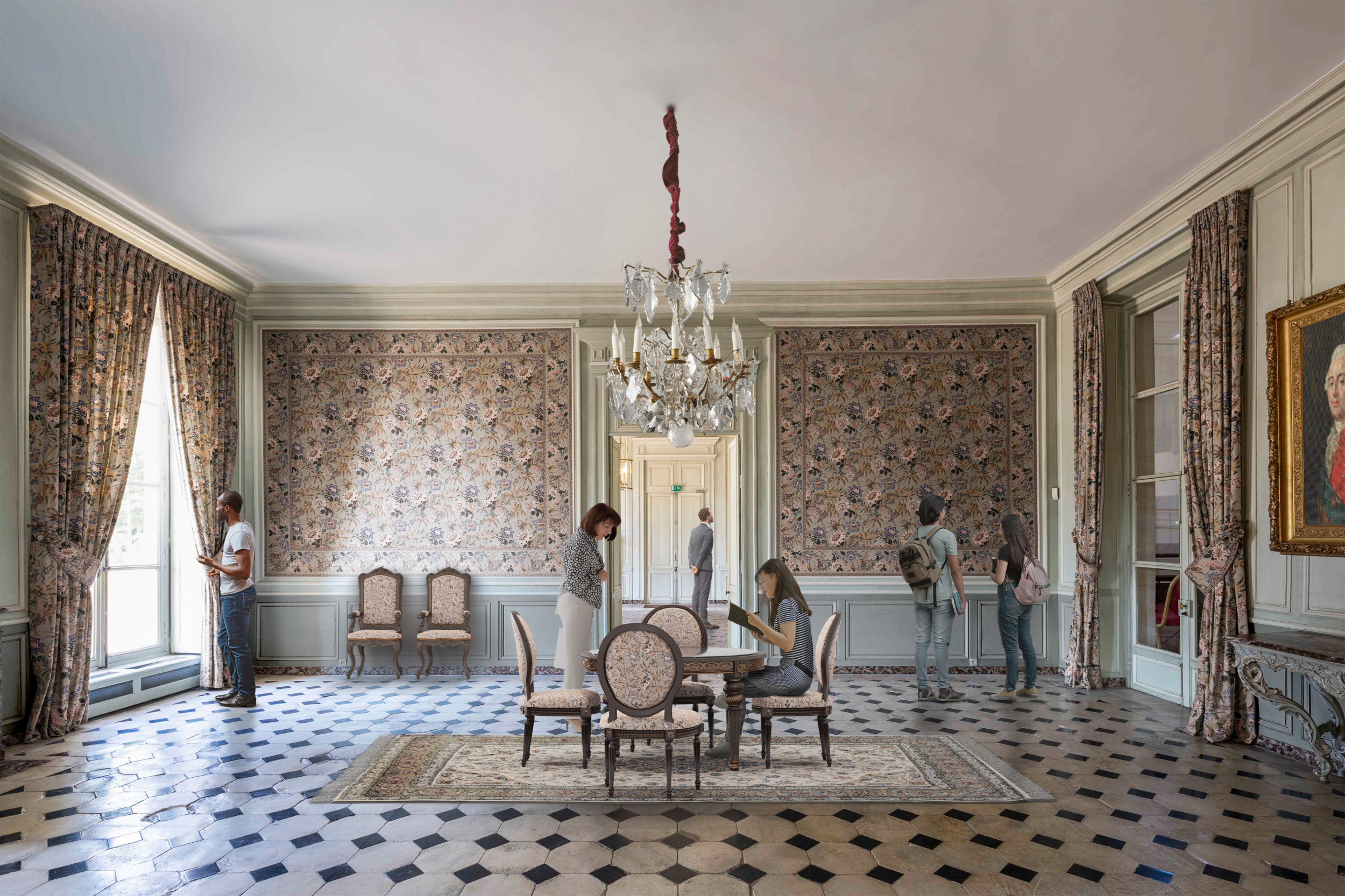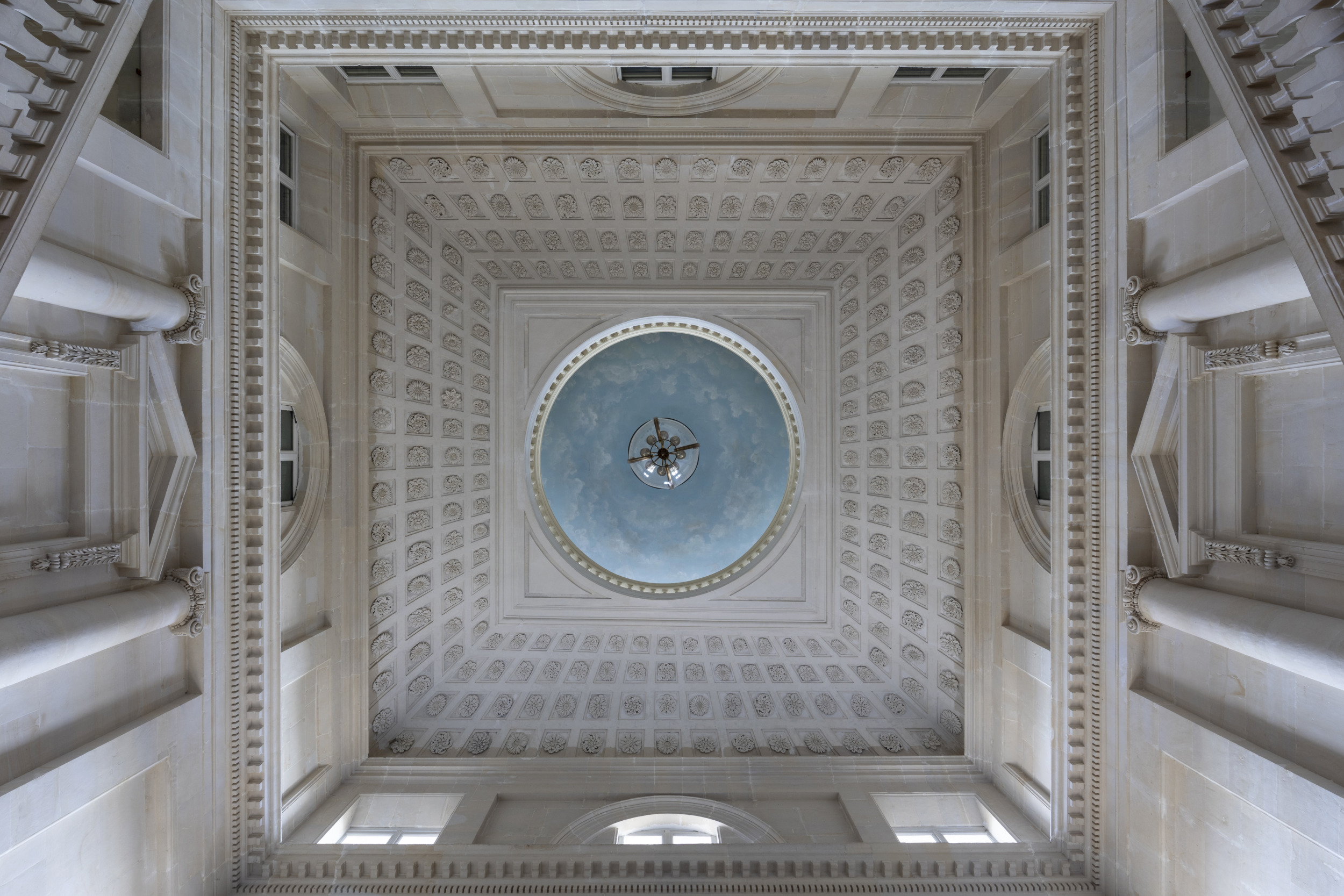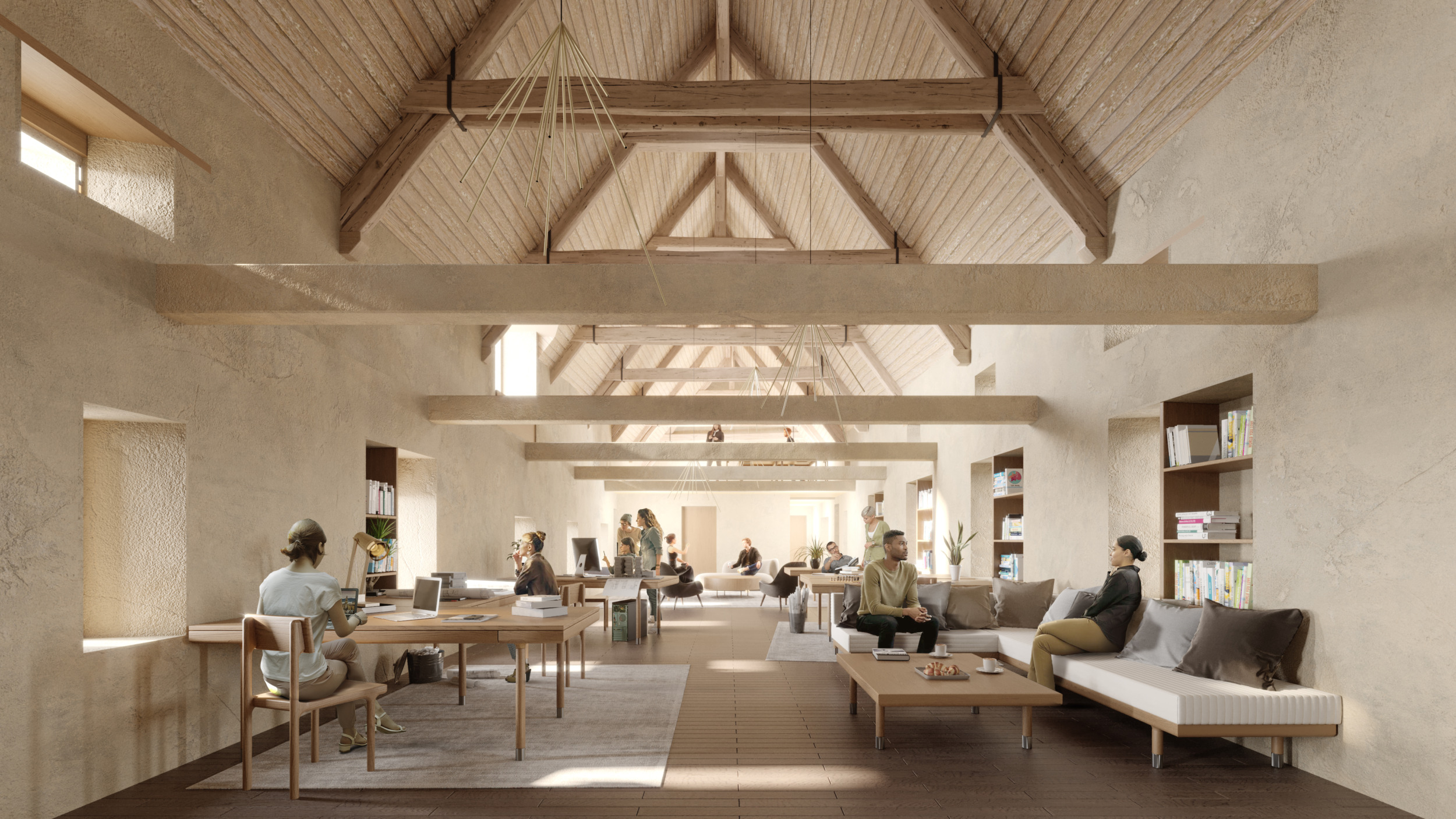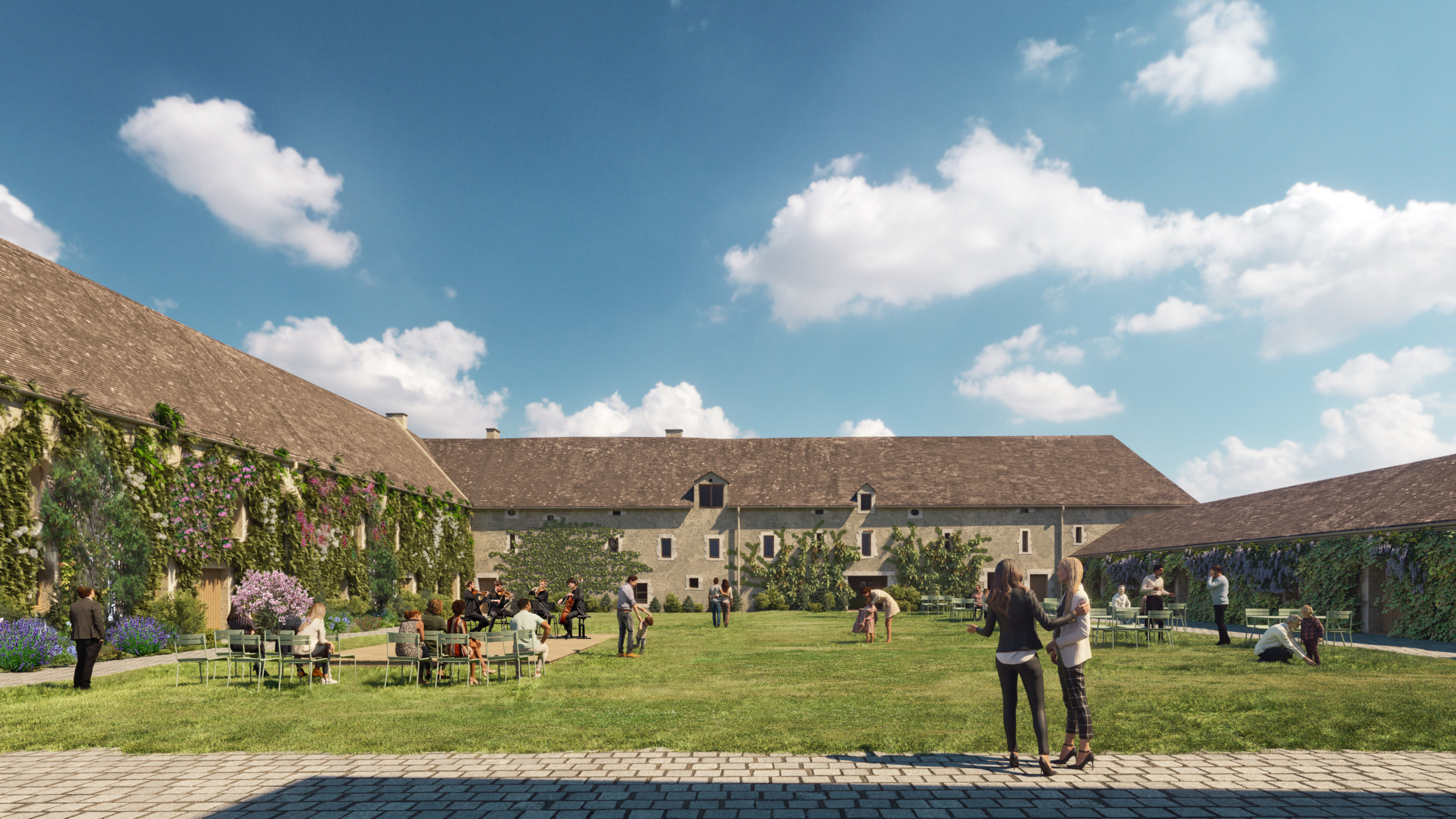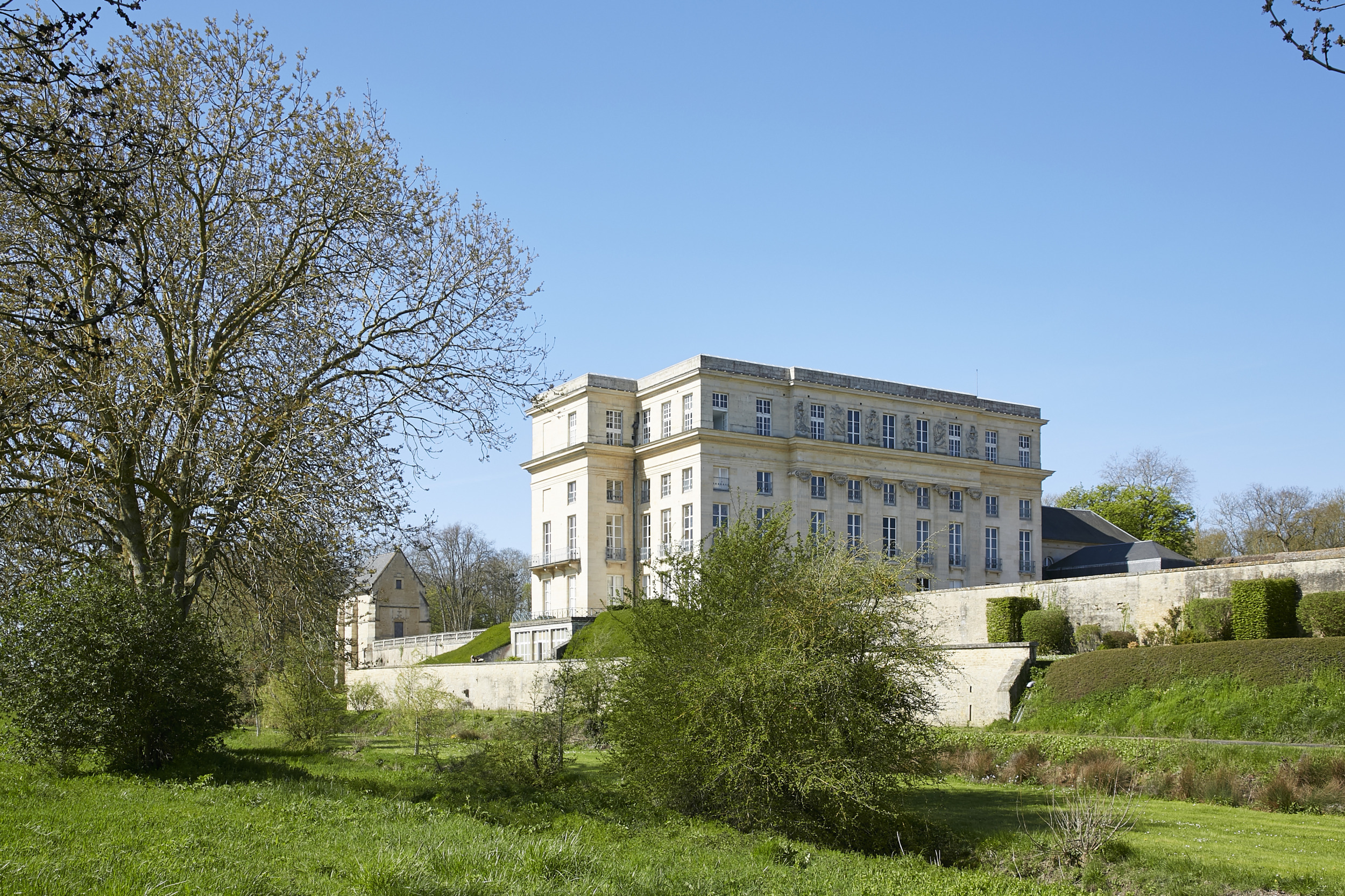The Château de Bénouville was built between 1769 and 1785 by the visionary Enlightenment architect Claude-Nicolas Ledoux, at the request of the Marquis de Livry, to provide a sumptuous mansion and private reception venue. This work, which introduced neo-classical architecture to Normandy, is set in a large, wooded park, bordered since the mid-19th century by a canal connecting the city of Caen to the sea.
The château was in a poor state of repair at the beginning of the 20th century. It was bought by the Calvados General Council in 1927 and turned into a maternity home to accommodate single mothers and their children. When the home closed in 1983, the Regional Audit Chamber of Lower Normandy rented the premises and remained in the building until 2015. The property has been listed as a historic monument since 1930.
